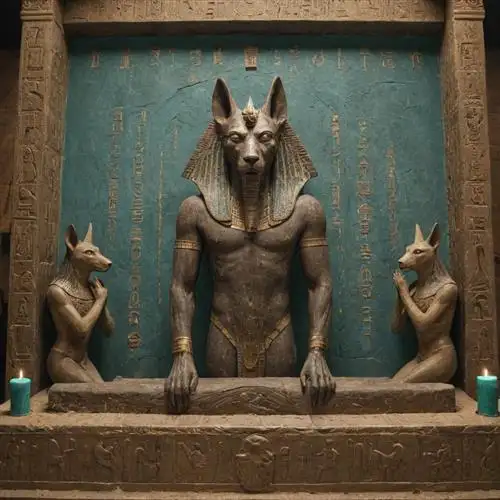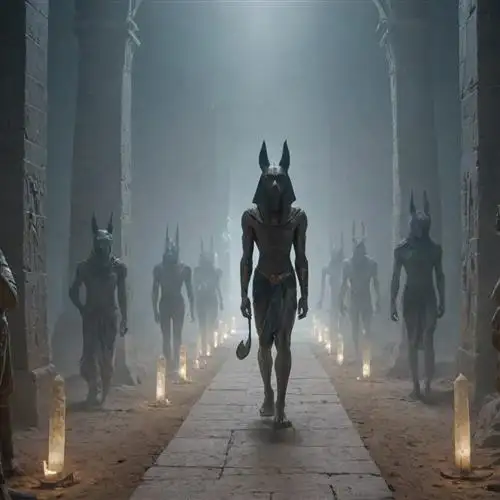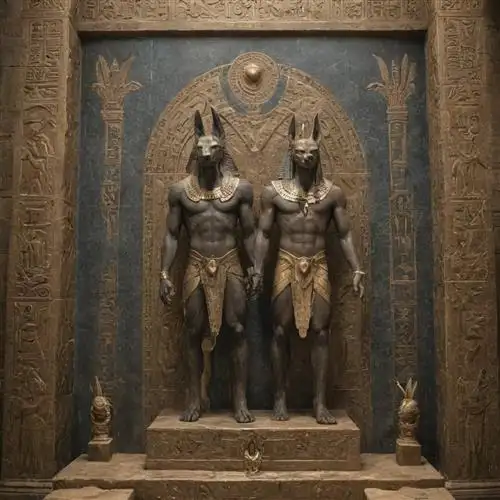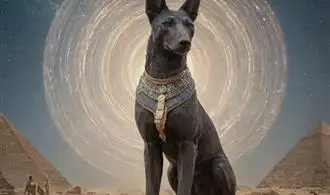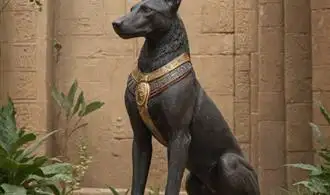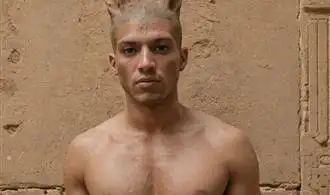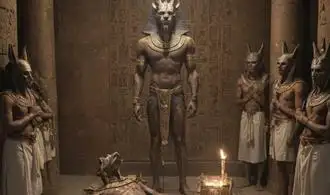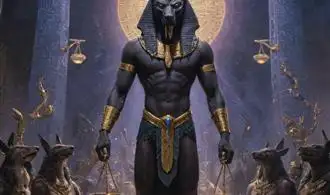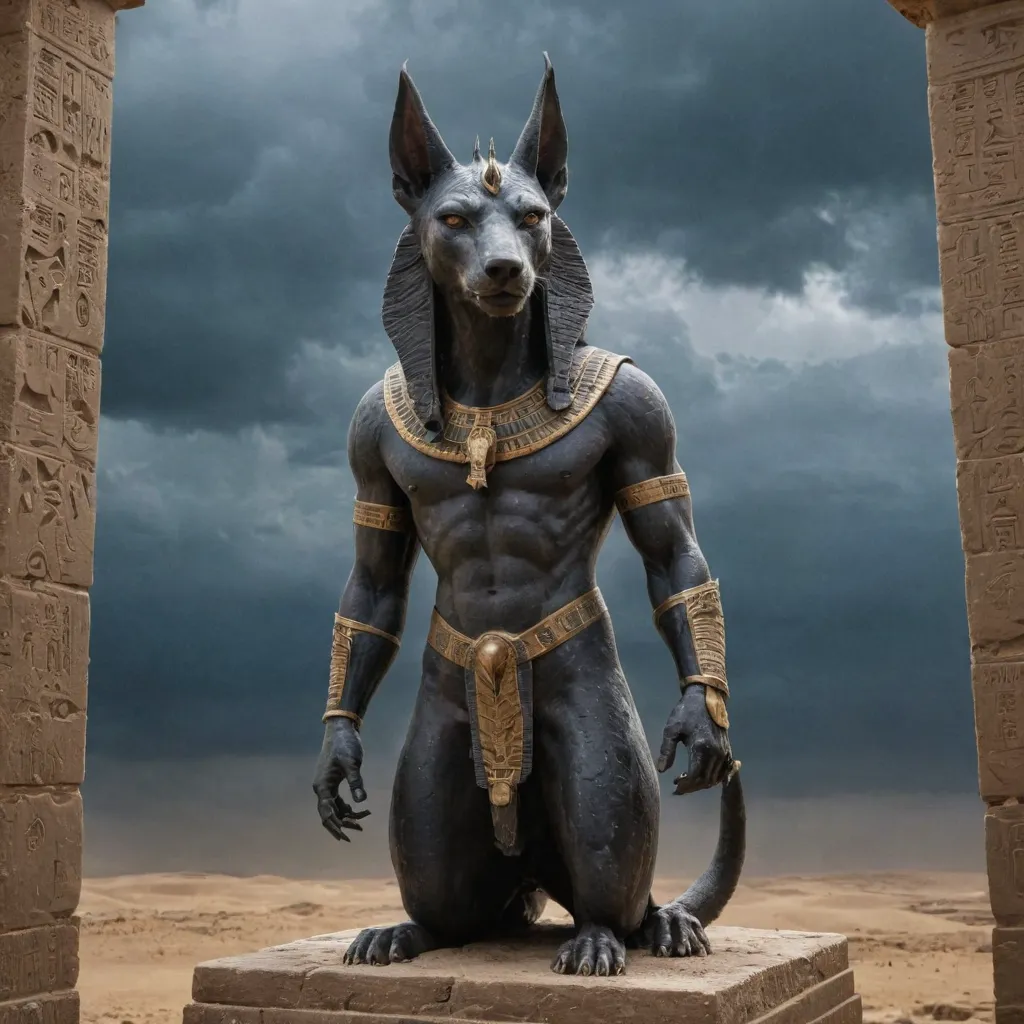
Anubis the Jackal Deity
Anubis, the jackal deity, holds a significant place in ancient Egyptian mythology. This enigmatic figure, with his canine-like features, was revered as the god of the dead, mummification, and the afterlife. Beyond his prominent role in funerary rites, Anubis possessed a multitude of powers that often went unrecognized by the casual observer.
One of the most notable aspects of Anubis's powers was his ability to guide the dead through the perilous journey to the afterlife. As the "Opener of the Way," Anubis was responsible for ensuring the deceased's safe passage, guiding them through the treacherous underworld and ensuring their successful arrival in the realm of the dead.
Anubis's role in the mummification process was also a crucial aspect of his powers. As the patron deity of embalmers, Anubis was believed to oversee the intricate and sacred process of preserving the dead body. This involved not only the physical act of mummification but also the invocation of spells and rituals to protect the deceased during their transformation into the afterlife.
Beyond his funerary responsibilities, Anubis was also associated with the weighing of the soul. In the famous "Weighing of the Heart" ceremony, Anubis would preside over the judgment of the deceased, ensuring that their heart (representing their moral and ethical deeds) was in balance with the feather of Ma'at, the goddess of truth and justice. This process was crucial in determining the fate of the soul in the afterlife.
Interestingly, Anubis's powers also extended to the realm of protection. As a guardian deity, Anubis was believed to safeguard the living from the dangers of the underworld and the malevolent forces that lurked within. Don't Let the Fear of Anubis Haunt You explores this aspect of Anubis's powers in greater detail.
Anubis Presiding Over Mummification
Anubis, the jackal-headed deity of ancient Egyptian mythology, held a profound role in the mummification process. As the god who presided over the embalming and burial rites, Anubis' powers were essential in the transformation of the deceased into the afterlife. One of the most significant aspects of Anubis' involvement in mummification was his role in the "Opening of the Mouth" ceremony.
The "Opening of the Mouth" ritual was a crucial step in the mummification process, as it was believed to restore the deceased's senses and ability to speak, breathe, and partake in the offerings left for them in the afterlife. Anubis would guide the priests through this intricate ceremony, ensuring the proper recitations and gestures were performed to awaken the dead and prepare them for their journey to the underworld.
Anubis' presence was also essential during the embalming process itself. As the god of the dead, he was responsible for overseeing the mummification of the body, from the removal of the internal organs to the final wrapping of the corpse. The jackal-headed deity would ensure the proper procedures were followed, invoking his powers to preserve the body and protect it from corruption.Furthermore, Anubis played a crucial role in the weighing of the heart ceremony, where the deceased's heart was weighed against the feather of truth. This judgment determined whether the individual was worthy of entering the afterlife. Anubis, as the guide of souls, would be present to oversee this critical moment, ensuring the process was carried out with the utmost care and precision.
Interestingly, the image of Anubis, often depicted as a jackal or a man with a jackal's head, was not just a symbolic representation. The jackal was believed to have a strong connection to the underworld and the process of mummification. Jackals were often observed scavenging near burial sites, and their behavior was interpreted as a sign of their role in guiding the dead to the afterlife.
Anubis Guiding Souls to the Afterlife
Anubis, the jackal-headed deity, is a central figure in ancient Egyptian mythology, known for his pivotal role in guiding souls to the afterlife. As the god of mummification and the underworld, Anubis' powers extend far beyond his physical form, encompassing the profound and intricate processes that govern the transition from life to death.
One of the most significant aspects of Anubis' powers is his role as the conductor of the dead. When a person passed away, Anubis would preside over the mummification process, ensuring the preservation of the body and the soul's safe passage to the afterlife. This meticulous attention to detail was crucial, as the Egyptians believed that the soul could not progress to the next stage of existence without the proper preparation of the physical form.
Anubis' involvement in the afterlife did not end with the mummification process. He was also responsible for weighing the heart of the deceased against the feather of truth, a pivotal moment in the judgment of the soul. This ritual, known as the "Weighing of the Heart," determined whether the individual was worthy of entering the afterlife. Anubis, with his unwavering gaze and keen senses, would carefully observe the proceedings, ensuring the accuracy and fairness of the judgment.
Furthermore, Anubis was believed to serve as a guide for the souls of the deceased, leading them through the treacherous and mysterious realms of the underworld. His intimate knowledge of the afterlife and his ability to navigate the complex spiritual landscapes made him an indispensable companion for those embarking on the final journey. Anubis would offer protection, guidance, and support, ensuring the soul's safe passage to the next stage of existence.
In addition to his role as a guide, Anubis was also believed to have the power to intercede on behalf of the deceased. Through various rituals and prayers, the Egyptians sought Anubis' intervention to secure the soul's acceptance into the afterlife and its subsequent transformation into a divine being. This belief in Anubis' ability to influence the fate of the soul was a testament to the deity's immense power and importance within the ancient Egyptian pantheon.
Anubis Weighing the Soul
The ancient Egyptian deity Anubis, known as the jackal-headed god, played a crucial role in the afterlife journey of the deceased. One of the most significant responsibilities entrusted to Anubis was the ritual of weighing the soul, a process that determined the fate of the individual in the afterlife.
In this sacred ceremony, Anubis would preside over the weighing of the deceased's heart against the feather of Ma'at, the goddess of truth and justice. The heart, believed to be the essence of the individual's soul, was placed on one side of a scale, while the feather, representing the concept of truth and righteousness, was placed on the other. This delicate balance symbolized the essential requirement for the deceased to have lived a virtuous and truthful life.
If the heart was found to be heavier than the feather, it was deemed that the individual had led a life filled with sin and wrongdoing. Such a person was then condemned to have their heart devoured by the devouring demon Ammit, a gruesome fate that would prevent the soul from continuing its journey to the afterlife. On the other hand, if the heart was found to be lighter than or equal to the feather, the deceased was deemed worthy and allowed to proceed to the next stage of their eternal existence.
The ritual of Anubis weighing the soul held profound significance in ancient Egyptian beliefs. It was a testament to the importance placed on morality, truth, and justice in the afterlife. The meticulous attention to detail in this process underscores the ancient Egyptians' deep reverence for the afterlife and their unwavering commitment to upholding the principles of Ma'at.
Moreover, the role of Anubis in this ritual elevated his status as a guardian of the dead and a gatekeeper to the afterlife. His presence during the weighing of the soul ensured that the process was carried out with the utmost care and impartiality, as he was entrusted with the responsibility of determining the fate of the deceased.
Anubis Protecting the Dead
Anubis, the ancient Egyptian jackal-headed deity, played a critical role in the afterlife journey of the deceased. As the god of embalming and the protector of the dead, Anubis ensured the safe passage of the soul from the physical world to the realm of the divine. His powers were multifaceted and essential to the funerary rituals and beliefs of ancient Egyptian civilization.
One of Anubis's primary responsibilities was to oversee the mummification process. He was believed to have taught the art of embalming to the first embalmers, ensuring the proper preservation of the body. This was a crucial step in the afterlife journey, as the body needed to be prepared to house the ka, or life force, of the deceased. Anubis would guide the embalmers, ensuring the mummification was carried out with the utmost care and precision.
Beyond the mummification process, Anubis played a pivotal role in the final judgment of the deceased. In the weighing of the heart ceremony, Anubis would oversee the weighing of the deceased's heart against the feather of Ma'at, the goddess of truth and justice. If the heart was found to be pure and without sin, the individual would be granted passage to the afterlife. Anubis's presence ensured the fairness and impartiality of this crucial judgment.
Anubis was also responsible for guiding the deceased through the perilous journey to the afterlife. He was believed to accompany the soul of the deceased, protecting them from the dangers and challenges they might face on their way to the underworld. This included guiding the soul through the dark and treacherous pathways, ensuring they reached their final destination safely.


